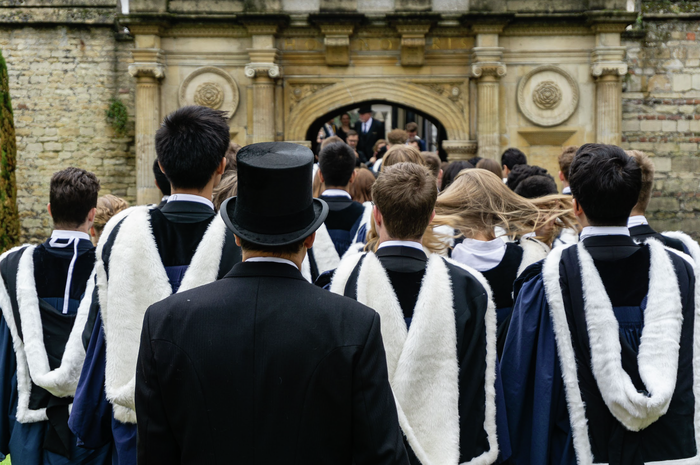Women and ethnic minorities get fewer firsts than white male peers, data suggests
While the gender gap is narrowing, no such trend appears for state school or BAME students

Women, students of colour and those who attended state schools are significantly less likely to receive first-class degrees than their peers, a Varsity investigation has found. Despite narrowing in recent years, the gaps continue to be a cause for concern.
Data seen by Varsity show that there is a sizeable difference in the proportion of men and women that earn first-class honours in the final year of their Tripos exams at Cambridge. Over the last ten years, the average proportion of male undergraduates that receive firsts is 33% to just 25% of women – an 8% gap.
The gendered gap widens in STEM subjects to above 10%. Last year, the gap was especially large, with 36.9% of men gaining firsts compared to only 23.8% of women – a 13% gap.
This is a university-wide phenomenon though with considerable variation between colleges.
Some colleges, such as Trinity and Hughes Hall, have much bigger gender attainment gaps in STEM – 33% and 44% respectively. But in some colleges the trend is reversed: female undergraduates at Trinity Hall tended to get more firsts. At Emmanuel the gender attainment gap was close to zero for both STEM and arts/humanities.
What is unknown are the inequality in exam results for individuals with other gender identities, who are excluded from these statistics; the University’s exam results database uses a binary system, with data only available for the attainment of ‘men’ and ‘women’.
The University told Varsity that this is “to ensure individuals cannot be identified, owing to the small number of students in this category.”
Academic attainment gaps also exist along ethnic lines. At first glance, the data suggest that BAME and white students receiving firsts are represented in roughly similar proportions. In fact, they appear to swap every couple of years.
However, when you break down BAME students into subgroups, the attainment gap between white and Black students is sizable: 25.7% in arts and humanities and 24.1% in STEM. This is hidden by the inclusion of other minority groups such as British Asians (Indians, Pakistanis, and Bangladeshis), who achieve more firsts than Black students but fewer than white students.
The gap is even larger between the subgroup of Black students who identify as British-Caribbean – they achieve 27.1% fewer firsts than their white peers in the arts and humanities and 32.9% fewer in STEM. In fact, zero Black or British-Caribbean students in STEM received firsts in their final exams last year.
Gaps between white students and students of other ethnicities not mentioned above were smaller. However, white students are consistently more likely to be awarded firsts than students of any other ethnicity.
State school students also do worse than students from independent schools in both the humanities and STEM, receiving 6.6% fewer firsts in arts and humanities, and 9.9% fewer in STEM subjects.
The gender gap however is declining. Whether this is due to grade inflation, a steady increase in the performance of female students, social change – or a combination of these three – Cambridge is slowly becoming less unequal for women. No such trend appears for state school students or BAME students for whom the attainment gap has been relatively stable across the past decade.
A University spokesperson told Varsity that “the University is aware of awarding gaps between different cohorts of students and is undertaking research to try to understand the reasons why they exist. The University is committed to eliminating all awarding gaps as part of its current Access and Participation Plan.”
Varsity has contacted Trinity Hall, Emmanuel College, Hughes Hall and Trinity College for comment.
 Comment / Cambridge students are too opinionated 21 April 2025
Comment / Cambridge students are too opinionated 21 April 2025 Comment / Cambridge’s tourism risks commodifying students18 April 2025
Comment / Cambridge’s tourism risks commodifying students18 April 2025 Interviews / Meet the Chaplain who’s working to make Cambridge a university of sanctuary for refugees20 April 2025
Interviews / Meet the Chaplain who’s working to make Cambridge a university of sanctuary for refugees20 April 2025 News / News in brief: campaigning and drinking20 April 2025
News / News in brief: campaigning and drinking20 April 2025 Lifestyle / Which coffee are you?20 April 2025
Lifestyle / Which coffee are you?20 April 2025


